Velocity Made Good Since Yesterday, Behind Locus Surfboards
By Kailani Wetherell for Sustainable Surf, 02 July 2024.
Santa Cruz, California. Surf capital. Home to Tyler Hopkins—a man who’s not just a husband, father of two, and grandfather of three, but a relentless surfboard craftsman.
After 25 years in Santa Cruz, Tyler’s journey into surfboard creation under the Locus brand has spanned a decade. But before he shaped his first board, he had an extensive career as an outside sales rep across multiple industries. His experience in semiconductor equipment sales introduced him to mechanical engineering design, sparking his passion for crafting surfboards.
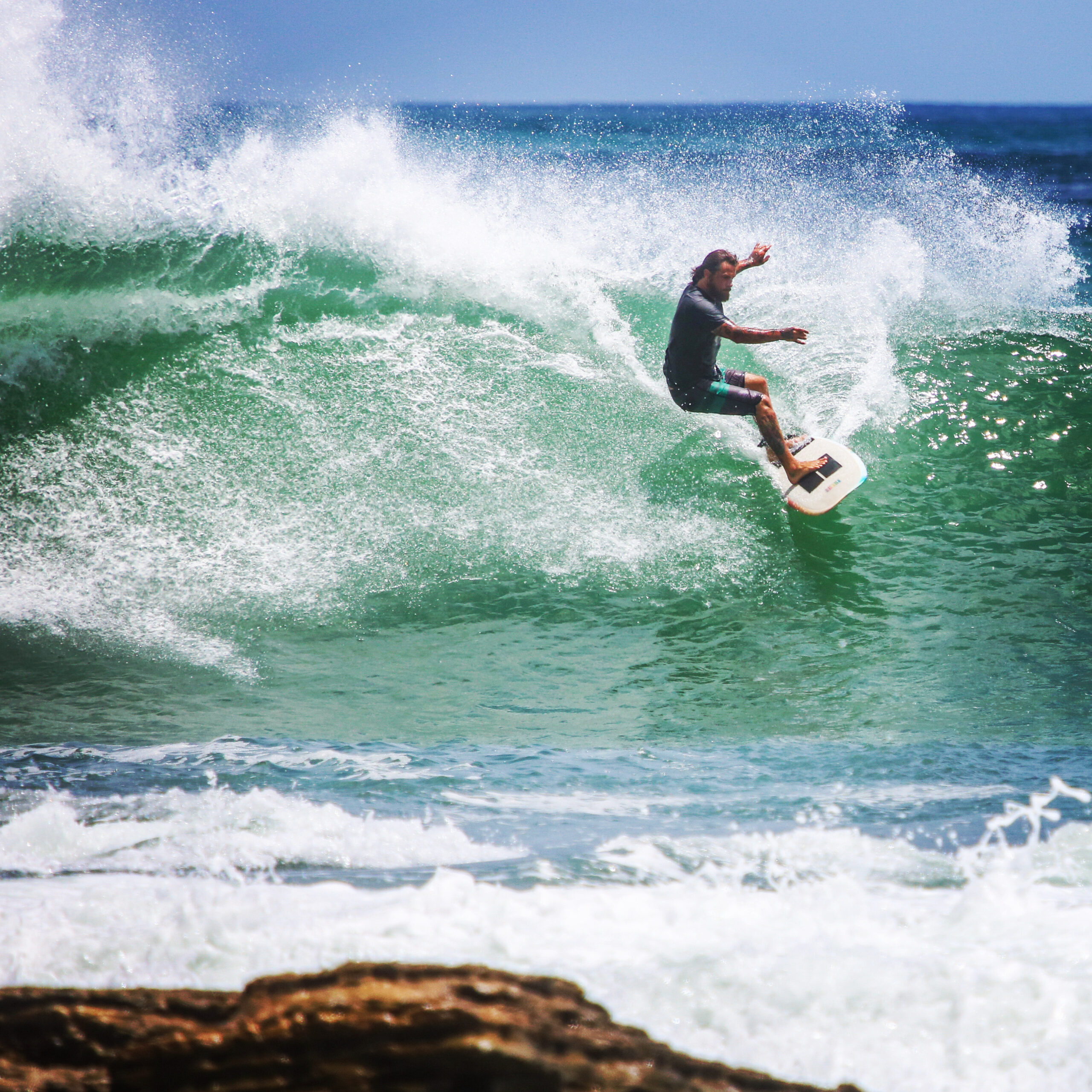
Determined to master the art, Tyler devoured every piece of information he could find about board design and construction. With his garage as his workshop, he built his first shaping room and created his first ever board that he still rides today: a hull design, 5’7″ x 22″ x 2 3/4″ Mini-Simmons with glass-on keels. He shaped it, glassed it, the whole trip “She looked ridiculous, but I was in love! After the first wave, I was hooked. I’ve never looked back,” Tyler recalls.
Tyler’s initial workspace was in his garage, attached to his family home. Ensuring the safety of his loved ones, he prioritized using materials with low environmental impact. Products like bio-based epoxies with very low VOCs were an easy choice. As he moved to a new factory space with Martijn Stiphout of Ventana Surfboards, he embraced Stiphout’s eco-friendly approach. Tyler began using recyclable E.P.S foam, Flax fabrics for glassing, and Locus Chip Brush Fins from used paint brush handles, reusing as many consumables as possible to reduce waste.
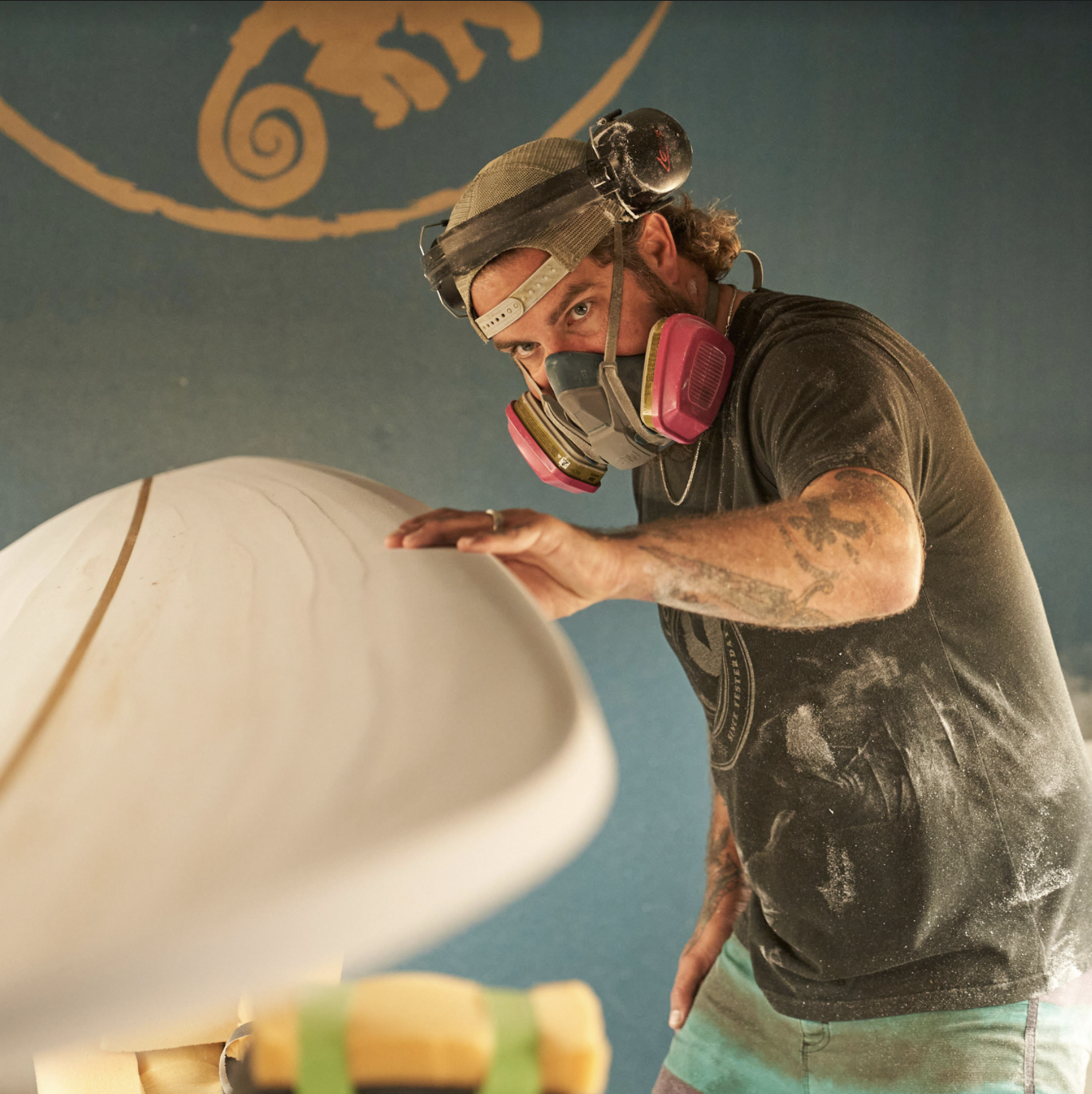
Handshaping each board, Tyler maintains tradition while focusing on sustainability at his factory in Aptos, CA. Locus aims to make performance surfing accessible to the average surfer. To ensure this, Tyler helps his customers achieve their surfing goals by starting with the right board model and building a versatile quiver. His favorite part of the process? The color works during glassing. He loves experimenting with abstract resin tints, mixing and combining colors. And through all of it, developing his style and technique has been the most rewarding aspect of his journey.
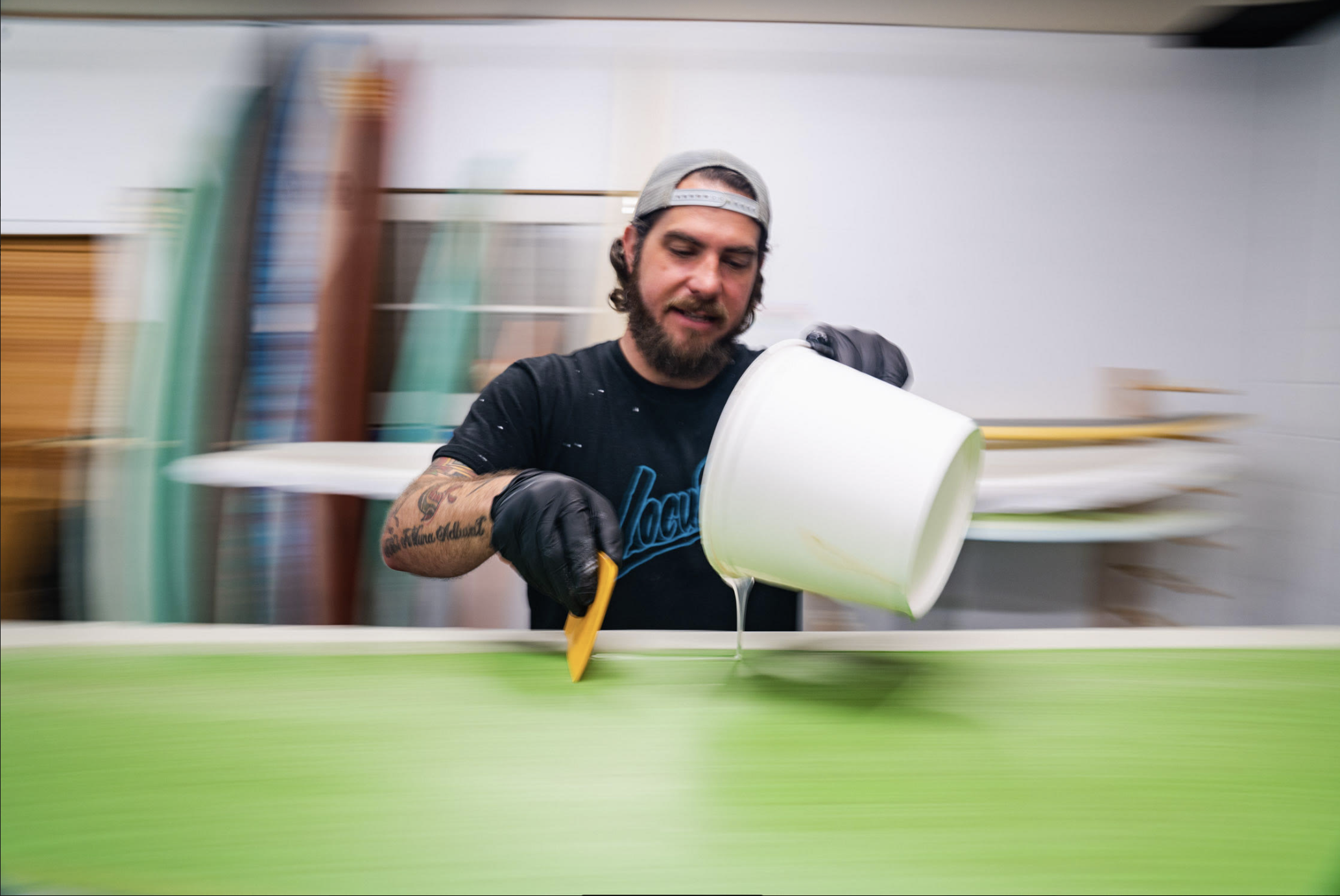
Locus’s journey toward sustainability took a significant leap forward when Michael Stewart visited the factory Tyler was sharing with Martijn Stiphout. It was here that Tyler was introduced to the ECOBOARD Project, which Tyler explains “provides a valuable platform for Ecoboard builders. The certification process and recognizable logos on the boards provide a clear benchmark for sustainable surfboard manufacturing.”
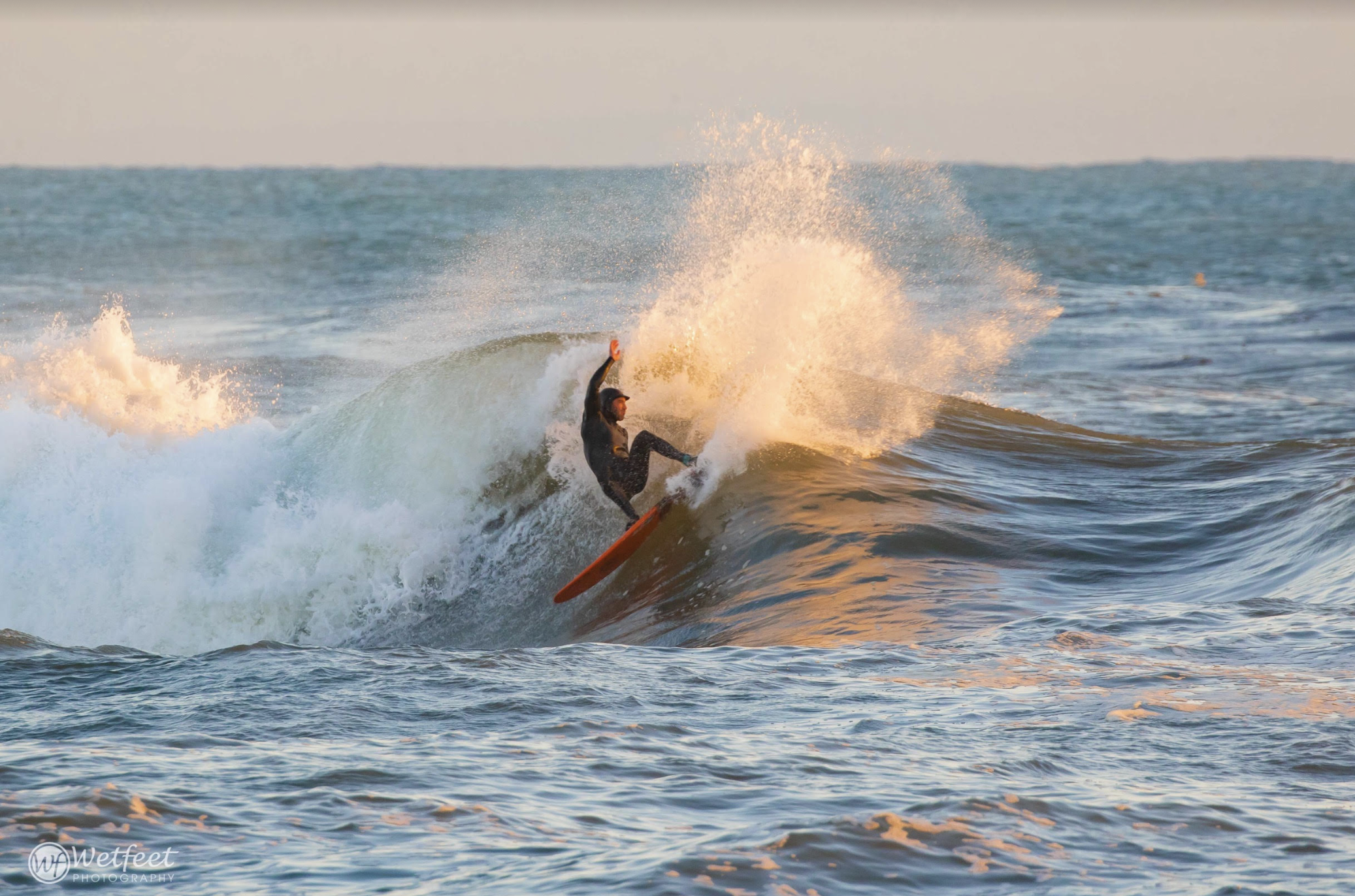
By joining the ECOBOARD Project, Locus has been able to reduce waste, lower VOC emissions, and decrease their overall carbon footprint, all while creating a safer factory environment. Looking ahead, Locus is committed to continually minimizing its environmental impact. Tyler envisions a future where a breakthrough bio-based substrate revolutionizes the surfboard industry, pushing the boundaries of sustainable production even further.
Ready to surf responsibly? Head over to @locus_surfboards to follow along their journey today.
